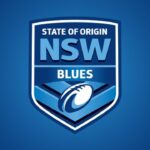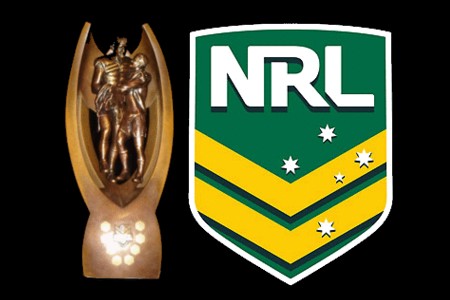The NRL came out yesterday with a curious announcement that, one week out from the finals, it would send any shoulder charge that made contact with a players head or neck straight to the judiciary without any grading.
This process is usually what happens with the most extreme cases of foul play and usually results in a player missing a large chunk of the season through suspension.
Looking past the fact the NRL are looking to change the rules one week out from the final, which is bloody ridiculous in itself, lets just keep focused on the issue of shoulder charges.
If the NRL wants to crack down on players getting head and neck injuries and cutting back the risk of concussion, that is great. It is a hard game as it is and the last thing we need is to have an extra risk layer that can see a players head and neck being targeted in tackles.
However, what makes contact with a players head or neck worse in a shoulder charge than it is in any other tackle? Why is hitting a player in the head with a shoulder charge worse than hitting them in the head with a swinging arm?
Its a curious ruling that I think sends the wrong message. Its counter productive. Today, instead of players and coaches and even fans talking about cutting back injury risks everyone is talking about players being suspended!
Rugby League is a tough sport. In every game, hundreds of times a game, we see very large human beings colliding at speed. When this happens hundreds of times a game in every game played, accidents are going to happen. The days of players going out to knock an opposition players head off are decades in the past. Players these days that get hit in the head or neck are the victims of accidents.
These days I would suggest that more players get hurt trying to make tackles rather than with the ball in hand. So where is the NRL going to draw the line? Will we soon see ball runners penalized if they knock a defender out?
Shoulder charges are as much a part of the game as any other type of tackle. They rarely happen, but they happen, and most of them don’t make contact with a players head or neck.
The NRL needs to think about what the end goal is when it comes to suspending players. If the goal is to protect players from head and neck injuries as much as possible, handing out massive suspensions for accidents is not going to change anything. It is not going to lower the rate in which these accidents happen and it certainly isn’t going to undo any damage done to a player that is a victim of a high tackle.
This screams of a public relations move. A stupid, reactionary decision that some marketing type in a suit thought would win points with those fictional Mums and Dads out there that supposedly stop their kids playing Rugby League every time they see a player gets injured.
Some have suggested this is a move to avoid litigation in the future by players who have suffered head injuries. I don’t see it. There are a thousand ways a player can suffer head and neck injuries. If we said players could not tackle above the waist, players would STILL get knocked unconscious! It just happens sometimes! So if a former player is looking to sue the NRL, they are going to do it, no matter what rules and regulations the NRL puts in place now or in the future.
If the NRL is that terrified of facing future lawsuits they should look at player contracts. They should work with the RLPA on an insurance scheme to help players facing problems because of concussion but in return protect themselves from direct lawsuits in return.
To come up with an extreme reaction as they have will make no difference what so every to what happens on the field. All it is going to do is rob players of important time on the field through suspension, even if they just happened to be involved in an accident.
It is ridiculous and a black mark against the games new administration.










Like almost all mid-season initiatives brought out by the NRL in recent years, I fear that this one will either be forgotten come 2013, or one of our ‘superstars’ will run afoul against it, and the NRL judiciary will forget about it even sooner.
As LeagueFreak™ stated, it is ridiculous and smacks of a reactionary decision, made to keep the boat steady in the short term. Shoulder charges are an exciting part of Rugby League, and when done properly, both a legal move and great to watch. There have been a number of incidents where a shoulder charge has come into contact with a players head. Unfortunately, these shoulder charges are only a small proportion of incidents where players have made contact with the head of another player.
What should we be doing? Firstly, giving a flat penalty of three weeks for making contact with the head. This penalty is indiscriminate, meaning everyone and anyone gets the same treatment, regardless of status within the game. This solves the problem that so many (myself included) have with leniency given to different players being widely varying and grossly unfair.
Secondly, it encourages players (and more importantly, coaches and clubs) to look at tackling technique both on an individual and club level. If a particular player is committing a number of fouls regarding tackling, rather than have him sitting out for a number of weeks through the season, he can be trained to tackle properly, or ordered not to tackle like that. Over time, hopefully, tackling technique gets better, to a point where a legitimate shoulder charge (or bell-ringer in my household) is applauded, not jumped on and banished.
Mistakes happen, and initially, I believe there would be some resistance against a proposal like this. But if we are serious about player safety, and keeping things that make our game exciting and unique, it could go a long way to helping it. It could also be applied to many of the wrestling techniques which have become a blight on the greatest game of all.
Rant out, over to you 🙂
Could just about turn that into an article! 😀